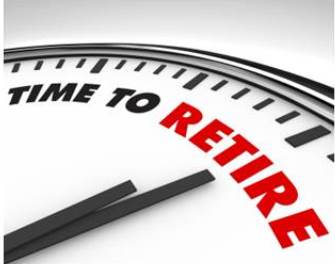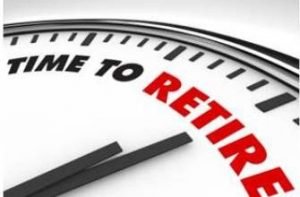Retirement Preparation Checklist


10 years away from retirement:
- Determine what you will need. Now is the time to make sure you are on course to achieve your retirement goals. Work with an advisor to create a specific plan to get you there.
- Maximize retirement plan contributions. This step is vital when you are a decade (or more) out from retirement. The most expensive thing that you will ever pay for is your retirement, so it is crucial to maximize contributions during these maximum earning years.
- Pay off personal debt as quickly as possible. Make sure that personal, college, and credit card debt are being eliminated. It is difficult to save the money you will need when you still carry expensive debt. Mortgage and car payments – even at low rates – should be reduced to an easily manageable amount. The goal is to eliminate liabilities, which work against you, so you can build up the assets you will need to work for you when you retire.
5 years away from retirement:
- Build a healthy cash reserve. Assuming that you have eliminated expensive debt (see above) and have maximized your retirement plan contributions, the next essential step for retirement is to build a healthy cash reserve. This reserve ensures that you have cash on hand to take care of unanticipated expenses, short-term projects and emergencies. So how much will you need? At this point, you will want to target a cash reserve equivalent to one year’s worth of your after-tax living expenses.
- Checkup. Are you on target with the plan? If not, reduce unnecessary expenses where possible. This will both lower your income requirement when you retire and allow you to save more before you do.
- Revisit your investment strategy. If you think you will need to begin taking withdrawals from your retirement assets immediately after you retire, you will want to adjust your investment strategy accordingly. Consider increasing your allocation to income assets and reducing your allocation to growth assets (stocks). If, however, you have ample after-tax assets, you may be able to delay taking income from your retirement accounts. In that case, you have the option to use a more aggressive investment strategy for your retirement assets.
1 year away from retirement:
- Review your progress. At this point your overall investment portfolio should be worth 25 to 33 times the value of your initial annual portfolio withdrawal. (In other words, the amount you will need to withdrawal each year should be no more than 3-4% of your portfolio’s overall value.) If you fail this check-up, you will need to consider some alternatives to outright retirement.
- Discuss Social Security and Pension options. Review your benefit options and plan to select those options that will best serve you and your family during retirement.
- Alternatives. If you fail to meet the criteria outlined above, you may need to defer retirement until later, find a part-time job to supplement your funds, or reduce your living expenses.
Weeks away from retirement:
- Prepare to consolidate your assets as far as possible. Plan to roll over your retirement assets to a consolidated IRA. You will be relying on your assets to support you during retirement. Consolidating them allows you to better manage them and make adjustments to the portfolio when needed. Once consolidated, your portfolio will need to use a strategy that can be reasonably expected to generate the returns you will need to support you both now and in the future. Work with your financial advisor to identify a suitable blend of both income and growth asses.
- Contact the Social Security office. If you need or want to take your benefits after retire, you will need to alert them that you want to begin to receive benefits.
- Focus on what you will do after your retire. Retirement is a time to do what you want to do, without being as concerned about the amount of income it will generate. Once you have retired “from” your job, a successful retirement requires having something you want to retire TO. Find a reason that motivates you to get out of bed in the morning.


